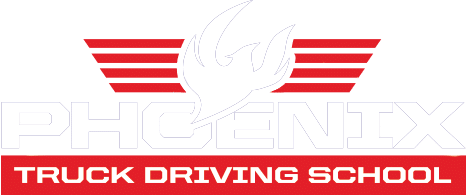If you’re looking to earn your Commercial Driver’s License (CDL) and launch a career in the trucking industry, Phoenix Truck Driving School offers high-quality training across multiple locations. Whether you’re in Arizona, Texas, or New Mexico, there’s a
CDL school near you with skilled instructors, flexible schedules, and job placement assistance. So, which campus is the best fit for your goals?
1. Flagstaff, AZ – Fast Track to the Road
Our Flagstaff location, in partnership with Coconino Community College, offers accelerated CDL training that can get you on the road in as little as four weeks. It’s a great option for students who want a structured, fast-paced program. Live farther away? Ask about our pop-up classes in Page, AZ.
2. Phoenix, AZ – Flexibility & Experience
Phoenix Truck Driving Institute is our flagship location, serving students for over a decade. Here, you’ll find flexible CDL training options, including part-time schedules, which are ideal for balancing school with work or family. Recognized as a Military Friendly School, this campus also offers multiple funding options to help you succeed.
3. Kingman, AZ – College Partnership with Extra Support
In Kingman, we’ve partnered with Mohave Community College to offer a comprehensive CDL training program. The 160-hour curriculum includes classroom time for the written CDL test and hands-on range training. Bonus: We also offer pop-up classes in Lake Havasu City, Bullhead City, and Colorado City.
4. Fort Bliss, TX – Military-Focused Training
Exclusively for active-duty military, veterans, and their families, our Fort Bliss campus helps service members transition into the civilian workforce. The four-week program includes both classroom instruction and hands-on training, with the chance to earn endorsements like hazmat, tanker, passenger, and doubles/triples. GI Bill® benefits may be available for those who qualify.
5. El Paso, TX – Civilian Training with Military-Level Quality
El Paso offers the same high standards and support as Fort Bliss, but is open to all civilians. The CDL training program includes classroom prep for the written exam, hands-on skills training, and endorsement instruction. You’ll be behind the wheel quickly and confidently.
6. Carlsbad, NM – A New Start in a Growing Industry
Located in southeastern New Mexico, our Carlsbad school offers comprehensive CDL training in as little as four weeks. With the trucking industry in high demand, this is your chance to start a stable, high-paying career close to home.
7. Sierra Vista, AZ – Small Towns, Big Opportunities
Sierra Vista extends its reach with pop-up classes in Douglas and Willcox, AZ. These programs are perfect for those in rural areas who want access to a quality CDL training program without having to relocate.
Find the Right Fit and Start Your CDL Journey
Whether you live in Flagstaff, Fort Bliss, or anywhere in between, Phoenix Truck Driving School has a location for you. Each of our CDL schools is staffed with experienced instructors and offers job placement assistance to help launch your truck driving career. Start training with Phoenix Truck Driving School and take the first step toward a rewarding career on the open road.















